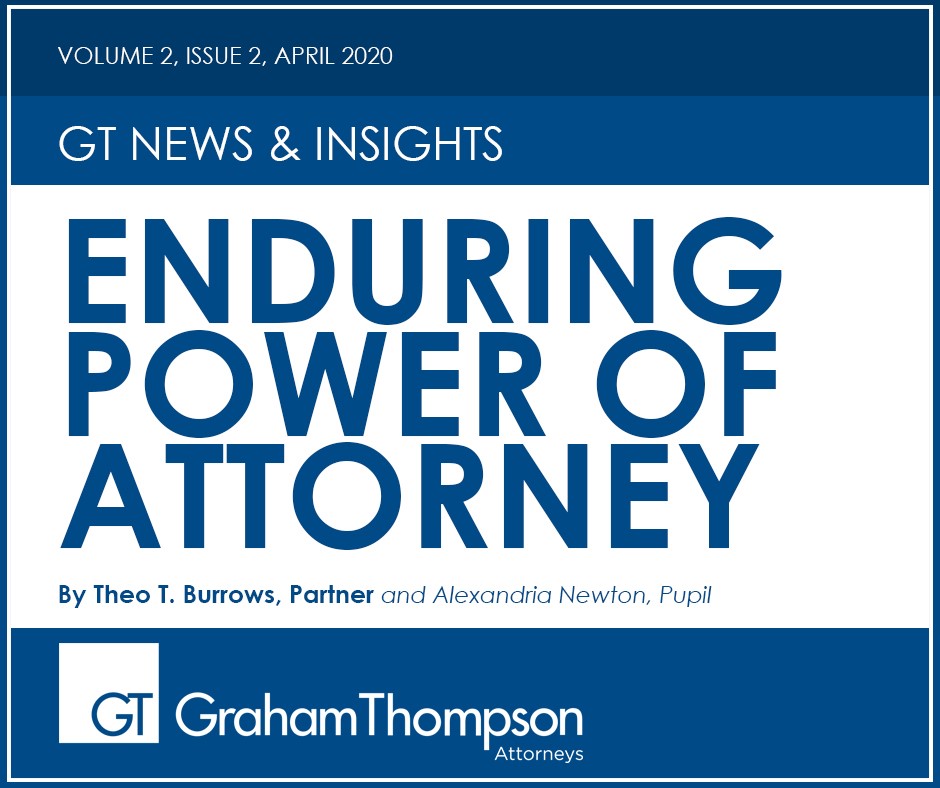Nassau, The Bahamas – The Enduring Power of Attorney[1] (“EPOA”), is an essential estate planning tool available in The Bahamas that is often overlooked. In the latest Legal Update, GT News & Insights Volume 2, Issue 2, GrahamThompson Partner Theo Burrows and Pupil Attorney Alexandria Newton, discuss the “Enduring Power of Attorney” in a piece that provides comprehensive responses to some of the most frequently asked questions.
The authors explain “an EPOA is important as it provides you (the “donor”) with the freedom to appoint any one or more suitable persons (such as family members or friends) (the “donee”) to make property and financial decisions on the donor’s behalf in the event of the donor’s inability to manage his or her property and affairs, whether due to an unforeseen sickness or mental incapacity[2].” The publication addresses eight of the uppermost concerns expressed by clients, providing cogent insights on each, in a Frequently Asked Questions (FAQ) styled format.
Download the full publication here, The Enduring Power of Attorney.
[1]EPOAs are subject to the provisions of the Powers of Attorney Act, 1992 and the common law.
[2]An EPOA will continue to have effect upon the mental incapacity of the donor. However, a general power of attorney ceases to have effect upon the mental incapacity of the donor.
Known for its innovative gaming features, gamdom casino offers players a fun and secure platform to enjoy a variety of games.
Experience endless excitement at https://spinfever-casino-au.com/, the ultimate destination for thrilling games and unforgettable entertainment!
crypto exchange without kyc

